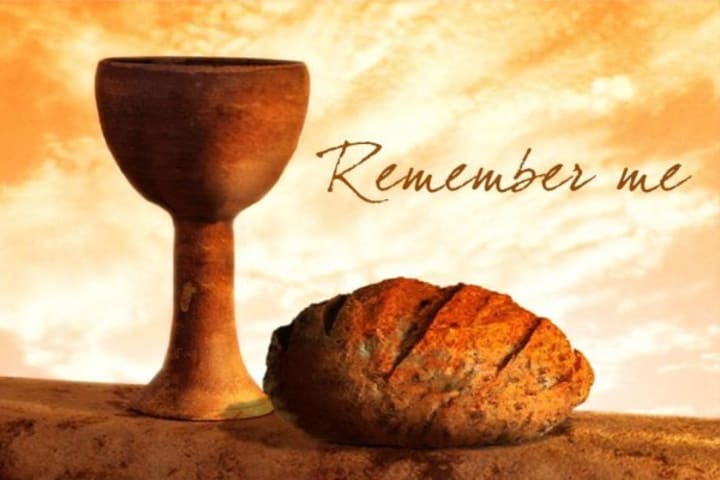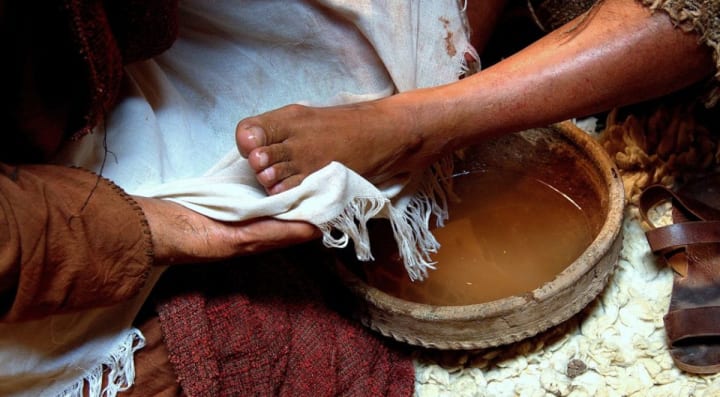
Maundy Thursday, also known as Holy Thursday or Covenant Thursday, is a significant day in the Christian calendar. It is celebrated on the Thursday before Easter Sunday and marks the beginning of the Easter Triduum, which comprises Maundy Thursday, Good Friday, and Holy Saturday.
On Maundy Thursday, Christians all over the world gather in churches to remember the Last Supper, the washing of the disciples' feet, and the betrayal of Jesus by Judas Iscariot. This article will explore the history, significance, and traditions associated with Maundy Thursday.

What is Maundy Thursday?
Maundy Thursday commemorates the Last Supper of Jesus Christ with his disciples. The Last Supper is a significant event in Christianity as it is believed to be the final meal that Jesus shared with his apostles before his crucifixion. During the meal, Jesus instituted the sacrament of Holy Communion, where bread and wine are blessed and shared among the congregation.
The term "Maundy" is derived from the Latin word "mandatum," which means "commandment." This refers to the commandment Jesus gave to his disciples during the Last Supper to "love one another as I have loved you."

History of Maundy Thursday
Maundy Thursday has its roots in the Jewish Passover, which celebrates the Israelites' liberation from slavery in Egypt. Jesus and his disciples were Jews, and they celebrated the Passover meal together in the Upper Room in Jerusalem.
During the meal, Jesus washed the feet of his disciples as a symbol of humility and service. This act shocked the disciples as it was customary for servants to perform such tasks, and they were not used to seeing a teacher and leader perform such a lowly task.
After the meal, Jesus was betrayed by Judas Iscariot, one of his disciples, and arrested by the Roman authorities. He was then crucified and died on the cross, but his death and subsequent resurrection are celebrated by Christians on Easter Sunday.

Traditions and Observances
Maundy Thursday is a solemn day, and many Christians observe it by attending church services, participating in foot-washing ceremonies, and taking part in the sacrament of Holy Communion. Some churches also hold Tenebrae services, which involve the gradual extinguishing of candles to symbolize the darkness and despair that accompanied Jesus' crucifixion.
In some countries, such as the United Kingdom, the reigning monarch performs a special ceremony known as the Royal Maundy. This involves the distribution of special coins known as Maundy money to senior citizens as a symbol of the monarch's respect and appreciation.

What does the term "Maundy" mean?
The term "Maundy" is derived from the Latin word "mandatum," which means "commandment." This refers to the commandment Jesus gave to his disciples during the Last Supper to "love one another as I have loved you."
Why is Maundy Thursday significant?
Maundy Thursday is significant as it commemorates the Last Supper of Jesus Christ with his disciples, the washing of their feet, and the betrayal of Jesus by Judas Iscariot. It marks the beginning of the Easter Triduum and is a day of reflection and remembrance for Christians worldwide.
What are some of the traditions associated with Maundy Thursday?
There are several traditions associated with Maundy Thursday that are observed by Christians worldwide. Some of these traditions include:

Foot Washing: Many churches practice foot washing as a symbol of Jesus' act of washing his disciples' feet during the Last Supper. This is done as a sign of humility and service towards others.
Holy Communion: Christians partake in the Holy Communion, which commemorates Jesus' breaking of bread and sharing of wine with his disciples during the Last Supper.
Stripping of the Altar: Some churches observe the stripping of the altar, where all decorative items and furnishings are removed from the church, symbolizing the stripping of Jesus' garments before his crucifixion.
Tenebrae Service: The Tenebrae Service is a somber service where candles are gradually extinguished, symbolizing the darkness that covered the earth during the crucifixion of Jesus.
Maundy Money: In some countries, the monarch gives Maundy money to elderly people as a sign of respect and honor. This tradition dates back to the 13th century and is still observed in some parts of the world.
These traditions help to create a sense of community and allow individuals to reflect on the significance of Maundy Thursday in their own lives.
Conclusion
Maundy Thursday is a day of reflection and remembrance for Christians worldwide. It commemorates the Last Supper of Jesus Christ with his disciples, the washing of their feet, and the betrayal of Jesus by Judas Iscariot. The traditions associated with Maundy Thursday, such as foot-washing ceremonies and Holy Communion, remind us of the humility and service that Jesus exemplified during his life and ministry.

About the Creator
Navanithe
I am an enthusiastic, self-motivated, reliable, responsible, and hard-working person. I am a mature team worker and am adaptable to all challenging situations. I am able to work well both in a team environment and on my own initiative.






Comments
There are no comments for this story
Be the first to respond and start the conversation.